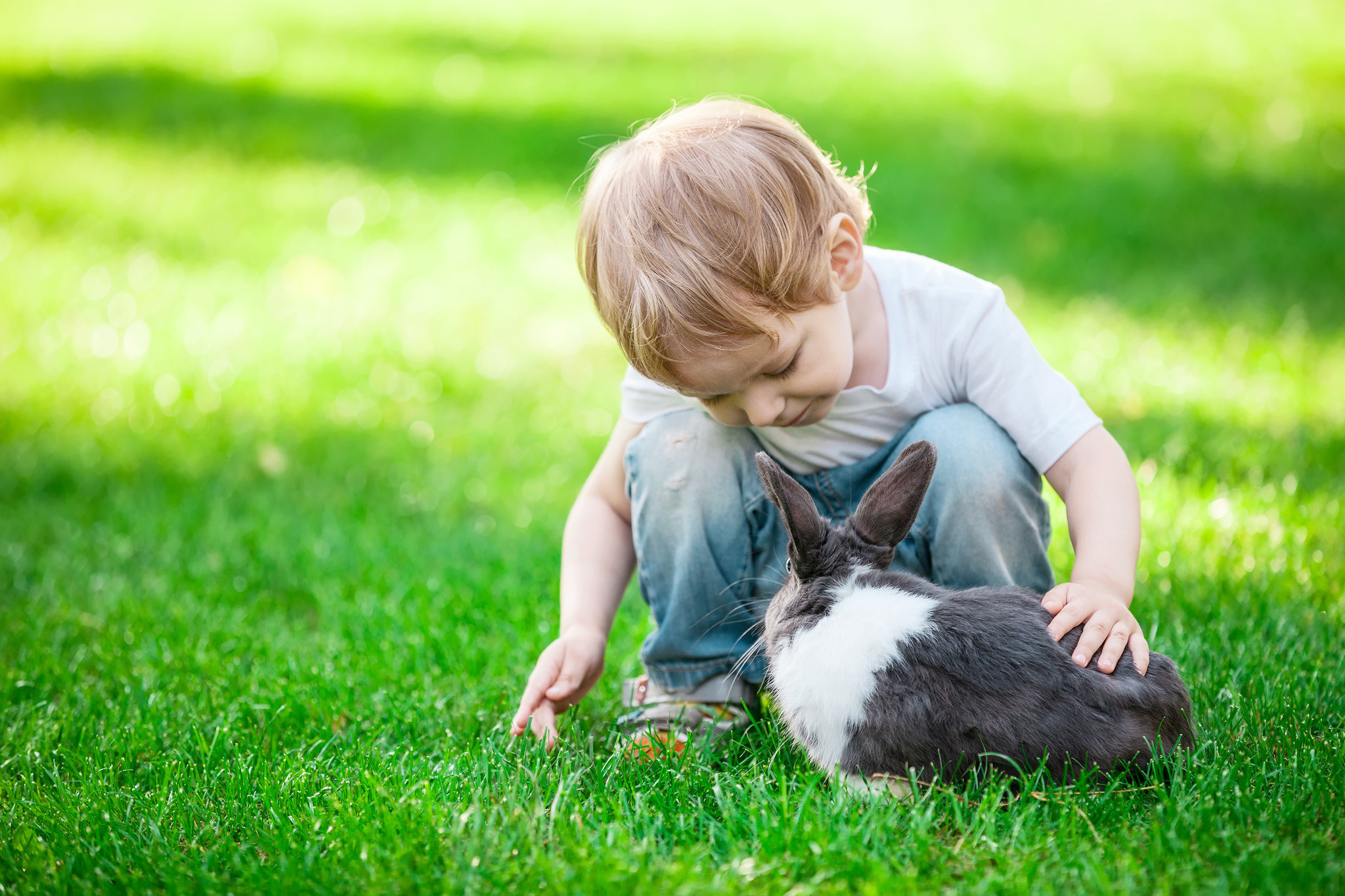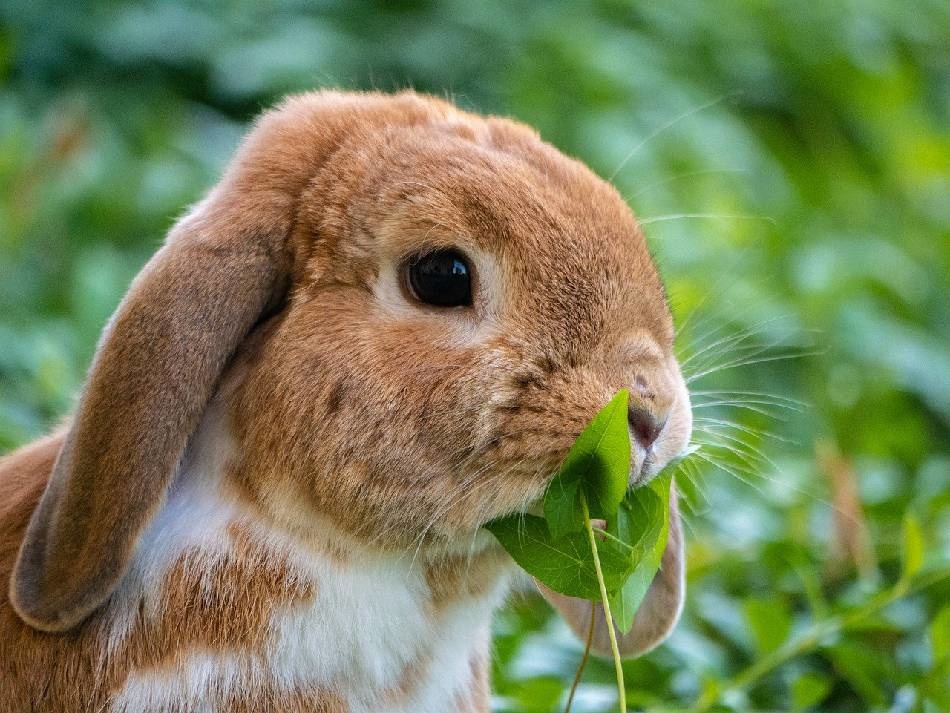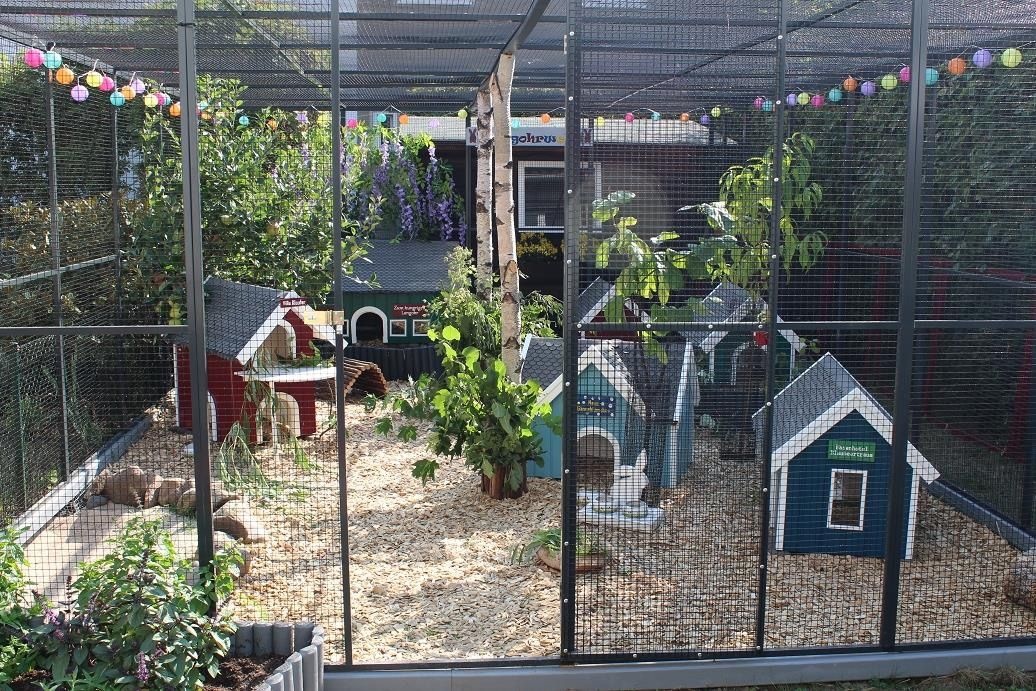How & Why raise a rabbit in your garden?

After chickens, rabbits are among the most popular animals to keep in the garden. Apart from family consumption, they are also an adorable companion for children. These long-eared lagomorphs have been attracting breeders for years. They fit perfectly into the landscape, whether in the playground, around the vegetable garden or near the barbecue. Why are they so popular and what should you do to keep a rabbit in your garden?
The benefits of keeping a rabbit
If many people have been choosing to keep rabbits on a mini-farm for some time, they have their reasons. These people are already fond of these quiet, self-sufficient animals. In fact, rabbits do not sing at dawn, bark or cackle. They also lead a very eco-friendly life. You don't have to take them anywhere to do their business. Everything happens in their hutch.
Together with the food scraps, the waste goes straight to composting, which helps to fertilise the soil in the nursery or vegetable garden to produce the vegetables that these lagomorphs love. In addition, the rabbits live in harmony with the chickens.
Another positive point is that rabbits can have a life expectancy of 10 years. However, they are sensitive to temperature changes. It may be nice to see a cute little rabbit frolicking in the garden, but there are certain precautions you should take to avoid risks.

How do you make a rabbit shelter?
Raising a rabbit requires a few precautions, especially when it comes to shelter. This type of animal is not meant to be kept in total freedom. There is a risk that it will escape without any chance of recovery, even if it is well tamed. Despite its docile and captivating appearance, this animal is not easily caught. It is preferable to provide an enclosure or hutch, well protected from the weather, especially from draughts. Access should be east-facing to avoid the heat of summer.
Like the hen, the rabbit's fur is insulating and can withstand the cold. This does not prevent the rabbit from being protected with a blanket or a layer of thick straw during severe frost to optimise its well-being. Also, it is important to check the ground conditions in advance and to remove all elements that could injure the animal, such as gravel, sharp stones, metal debris, glass fragments, etc.


Necessary precautions
To ensure the happiness and health of your pet, it is necessary to prevent rainwater from entering the enclosure. One part of the enclosure should be exposed to the sun and the other shaded, especially during the summer heat wave. Take into account possible predator attacks by bringing the rabbit in at night or by closing the fence tightly.
As for food, rabbits are exclusively herbivorous. So remember to plant dandelions, clover, hay and greenery in your garden. Domestic species cannot identify poisonous plants (holly, fir, yew, poplar, etc.). It is best to avoid them so as not to lose your big-eared friend quickly.


Comments
Be the first to comment...